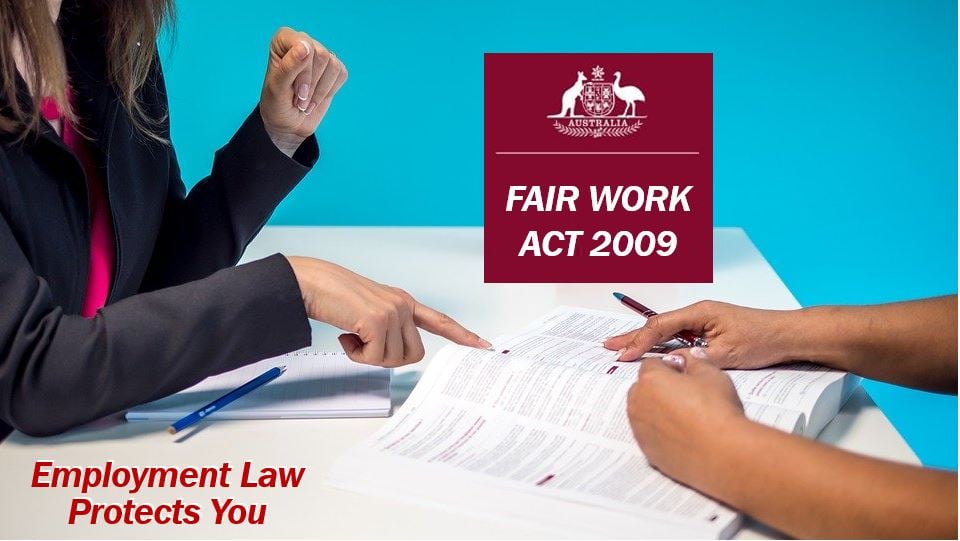Each individual who undertakes employment within Australia is entitled to general workplace protections under the Fair Work Act 2009 as well as other pieces of legislation. Employment law regulates workers rights in specific industries and ensures that employers fulfil their legal obligations. If you are unsure about your legal obligations, consult an employment lawyer for specialised legal advice to support your business.
 What Is Employment Law?
What Is Employment Law?
Although a broad area of the law, employment law can be defined as the relationship between employers and employees. Australia’s employment law is regulated through federal and state legislation and relates to situations arising from employer and employee relationships. This includes things such as wages, working conditions and protection of workplace rights.
In order to maintain relevant employment laws, major reforms may change the way of current legislation for future operation. Other procedures that take place each year, such as the Commission’s review of the country’s minimum wage, also has an impact on the current operation of enacted legislation. As an employer, you are required to stay up to date with the latest legislation changes in order to implement them in your workplace environment.
What Is The Purpose Of Employment Law?
Employment law seeks to regulate the relationship between employers and employees while also protecting employees rights during a term of employment. Employers compliance with applicable legislation ensures consistent and fair dealings for all employees across Australia. This includes job advertising, recruitment as well as day to day work activities and interactions. The relevant laws also provide a legal basis for employers to expect reasonable performance from their employees to the tasks and duties entailed within their job description.
The legislation also outlines the legal obligations that employers must follow when hiring and dismissing employers. A failure to comply with the guidelines will result in a breach of the law, leaving employers open to litigation.
What Is Your Protection Under The Fair Work Act
Adverse action
Adverse action is defined as actions that are unlawful if undertaken for particular reasons. These actions can include doing or threatening to do the below:
- Firing an employee
- Refusing to grant an employee their legal entitlements such as payment or leave entitlements
- Altering an employee’s job resulting in a disadvantage
- Offering unfair terms and conditions to a potential employee which are different to current employees
- Ceasing a contract or refusing to enter into a contract in the first place with an independent contractor or providing discriminatory terms and conditions which has a detrimental impact on their position or refusing to supply goods/ services to them
Coercion
Coercion can be defined as forcing an individual to take part or follow through with an action against their will, by means of intimidating or threatening the individual if they do not proceed with your request.
As a fundamental workplace right, a person cannot be forced into doing something they do not want to do. For example, an employer cannot threaten to reduce an employee’s hours as a tactic to force the employee to vote for an enterprise agreement. Coercion still remains to be unlawful even if it wasn’t successful.
Misrepresentations
Misrepresentation is when a person recklessly makes false or misleading representations to another person, and that person has relied on that representation. For example, telling a casual employee that they are not entitled to parental leave, despite knowing that this isn’t true, is a misrepresentation and therefore unlawful.
Employment law forms an essential aspect of an individual’s day-to-day life. Both businesses and employees should be well informed of their respective obligations and rights to ensure uniform compliance and fair dealings. As employment laws are regularly changing, ensure that you keep your knowledge up to date.
_________________________________________________________________
Interesting related article: “What is a Job?“

